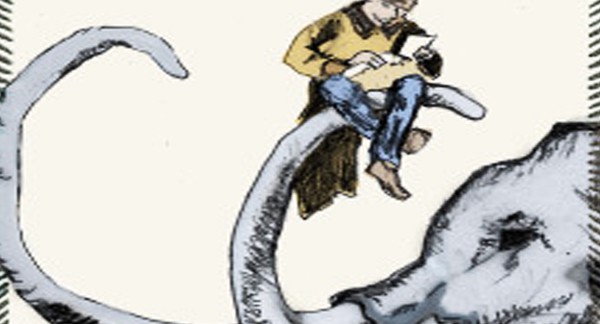Books & Culture
The Invisible Rub of Angela Woodward’s Natural Wonders

by Jacob Singer

A simple miscommunication can linger in one’s memory when death is involved. Throughout Angela Woodward’s Natural Wonders (winner of the FC2 Catherine Doctorow Innovative Fiction Prize), the reader returns repeatedly to the scene of a missed kiss, one that leads to a husband abruptly shaking hands with his wife as though she were a colleague, a realtor, or a recipient of an award. It’s an awkward mistake that Jenny should forget. She simply swerves sideways one morning on her way out the door. She misreads the moment, a mindless error, and ends up shaking hands with her husband. As Jenny leaves, Jonathan suffers a heart attack that ends his life and begins her story.
The chair of Jonathan’s academic department asks a simple request from Jenny: organize his lectures for a memorial edition. Natural Wonders assumes this form, each chapter blurring his lectures with the couple’s story, their love mixing and mashing with ice ages, pre-history, and astronomy. Most of the book’s pleasure stems from piecing these divergent parts into a larger narrative picture. While many puzzles perfectly click into place, this book never forms a complete scene. It’s intentionally open-ended. Reading the novel, you actively push lectures against the couple’s love story in an attempt to discover metaphorical truths. Yet they don’t perfectly fit. They rub past each other. This literary experience is comparable to the sensation of pushing two positively charged sides of a magnet together. They don’t want to touch, no matter how hard you push. There’s an invisible “softness” existing just off the physical object, filling the surrounding air with a tangible charge. Woodward’s novel is imbued with a similar energy that the reader must play with in order to put the pieces together.
This “softness” is a result of Woodward’s well-crafted sentences, which have absorbed Jonathan’s scientific language and Jenny’s peculiar view of it all. The scientific language pulls readers into the couple’s specific universe, proving certain language mavens wrong: jargon can be good. Everyone is an expert in something. Everyone speaks with some specialization. Jargon, in good hands, doesn’t have to be alienating. In this case, Woodward’s language is artful and welcoming, taking the reader somewhere unique and private.
It’s Jonathan who says, “We are after all constructing a whole world from such partial evidence as this,” but it’s Jenny who pieces this world together from what he left behind. Her language resembles David Markson in Wittgenstein’s Mistress. Just as Kate, Markson’s narrator, feels adrift in her isolation, Jenny suffers from the same loneliness, that which comes with the death of a loved one. While Kate talks of art, Jenny speaks of science. Wittgenstein’s Mistress seems under the influence of Samuel Beckett. Its sentences are short and often making sharp pivots. But Woodward leans in the opposite direction — more towards maximalists like William Gass. Her sentences direct the reader to both see and perceive the world in a specific ways, each word pointing and painting, each phrase indicating and illuminating. Her sentences flow and ripple as they take hold of the world and shape its meaning. Ultimately, this is what the book is about. It dramatizes how individuals shape and reshape private moments until they become loaded with meaning and end up defining both life and death.









